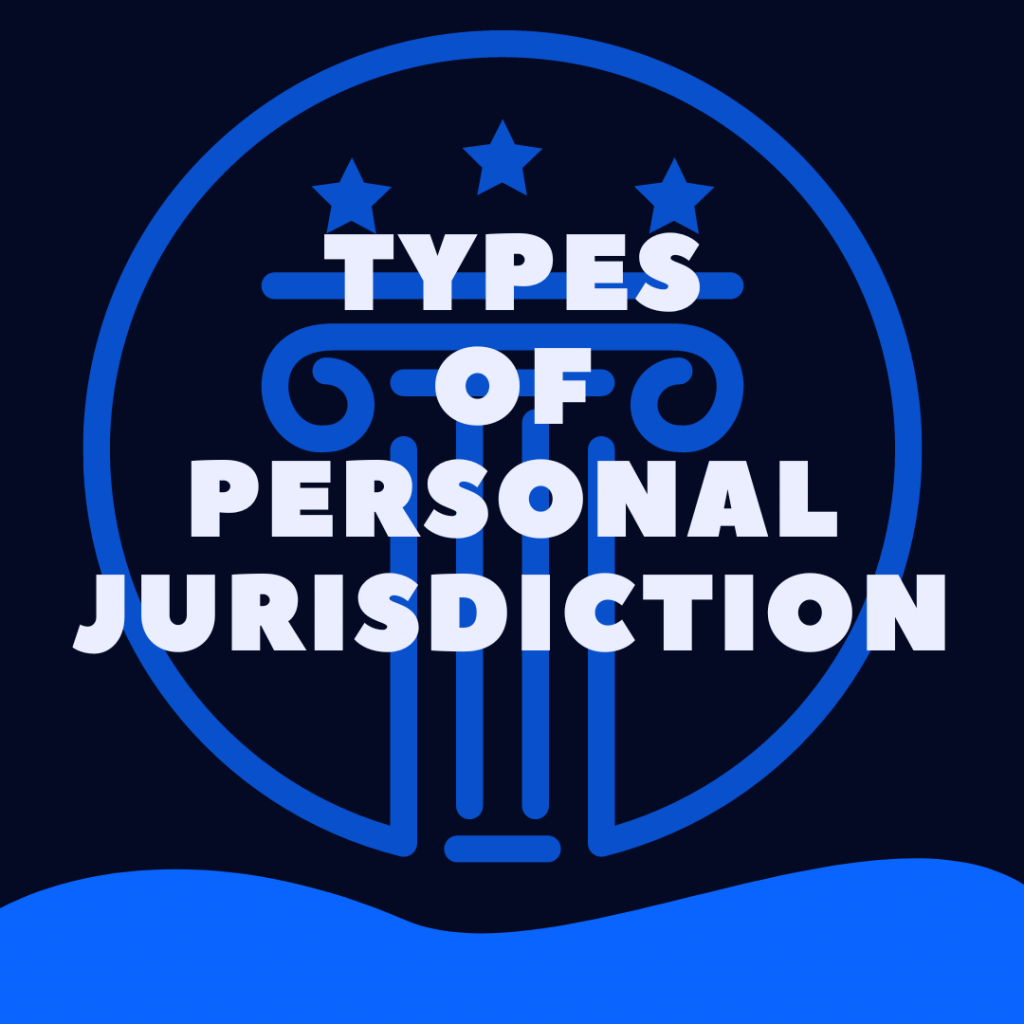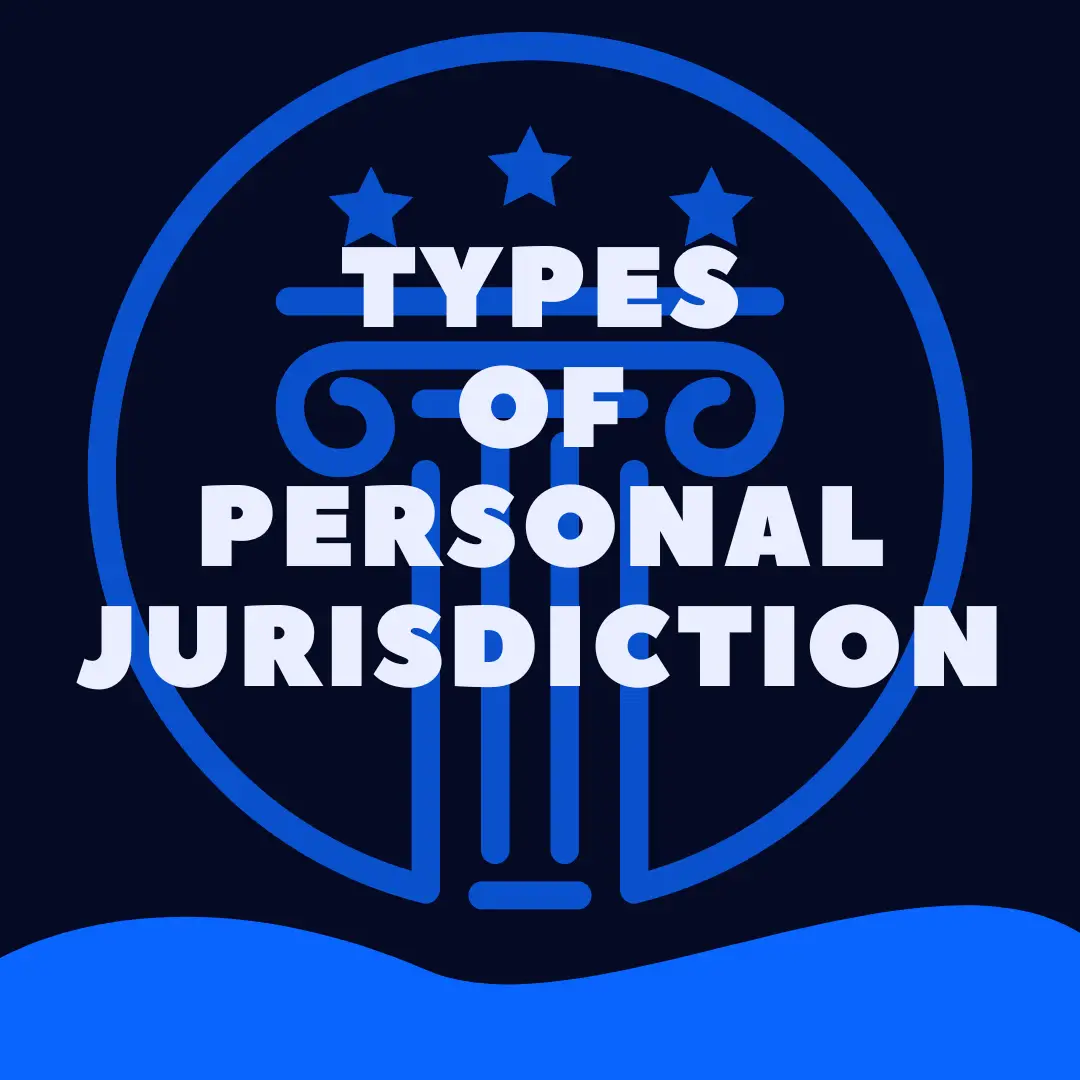There are three types of personal jurisdiction: in personam jurisdiction, in rem jurisdiction, and quasi in rem jurisdiction.
In the article that follows, we’ll explain more about each of these types of jurisdiction
Types of Personal Jurisdiction (Explained)
In Personam Jurisdiction
In personam jurisdiction exists when the forum (meaning usually a court in a particular place) has power over the person of a particular defendant.
(Jurisdiction over a plaintiff is generally not an issue because the plaintiff agrees to the court’s jurisdiction by initiating suit in that court in the first place).
In in personam cases, the court may render a money judgment against the defendant or may order the defendant to perform acts or refrain from acting.
Such an official decision creates a personal obligation on the defendant participant and entitled to full faith and credit (meaning enforcement and recognition) in other states.
For example, if a defendant is ordered to pay a sum of money to a plaintiff in one state, the plaintiff may enforce the judgment (meaning try to collect) against the defendant’s property in any other state where that property is located.
In Rem Jurisdiction
In rem jurisdiction exists when the court has power to decide the right of all persons in the world with respect to a particular item of property.
This power is limited to situations where a piece of property is located within the physical borders of the state and where it is necessary for the forum state/court to be able to bind all persons regarding the property’s ownership and use.
This occurs with most often in actions for condemnation (eminent domain cases), forfeiture of property to the state (like when the property is used for the unlawful transportation of an illegal substances), and settlement of dead people’s estates/property.
Quasi In Rem Jurisdiction
The final type of jurisdiction is quasi in rem jurisdiction.
Quasi in rem jurisdiction exists when the court has power to determine whether particular citizens or businesses own specific property within the court’s control.
Unlike in rem jurisdiction, this type of jurisdiction does not permit the court to determine the rights of all persons in the world with respect to the property.
A second type of quasi in rem jurisdiction allows a court to decide disputes other than ownership based on the presence of the defendant’s property in the state.
General Jurisdiction vs Specific Jurisdiction: What’s The Difference?
What Is General Jurisdiction?
General jurisdiction can have more than one meaning.
It can mean that ‘general subject matter jurisdiction’ of a court.
It can also mean the all purpose in personam jurisdiction of a court.
Either way, it has to do with a more broad authority of a court to handle a case that should not be heard elsewhere.
With general jurisdiction, a person can be sued in the state regardless of where the facts giving rise to the case occurred (in or outside of the state).
Many states have statutes conferring general jurisdiction over specific kinds of cases, such as civil cases involving money, criminal cases, and probate administration.
What Is Specific Jurisdiction?
Specific jurisdiction (aka specific personal jurisdiction) is a form of minimum contacts that allows a forum court to exercise personal jurisdiction over a corporate defendant because of the corporations activities in the particular state.
For example, let’s saw you are a company incorporated in Ohio, and located in Ohio, and you only do business In Ohio.
A plaintiff cannot just file a lawsuit in New York against you (and have the lawsuit heard in New York) if you don’t have any contact of any kind in New York.
Wrap Up
While a bit complex, the types of personal jurisdiction in a case place limits on what the parties (and the courts) can do, and give lawyers guidance for how to go about proceeding with cases.
Want to learn more about the courts and our justice system?
Browse our free legal library guides for more information.
You might also like:
- Can You Be Served Over The Phone?
- Do All Civil Cases Go To Trial?
- Does Service Of Process Alone Establish Personal Jurisdiction?
- 4 Reasons Why Personal Jurisdiction Is Required



